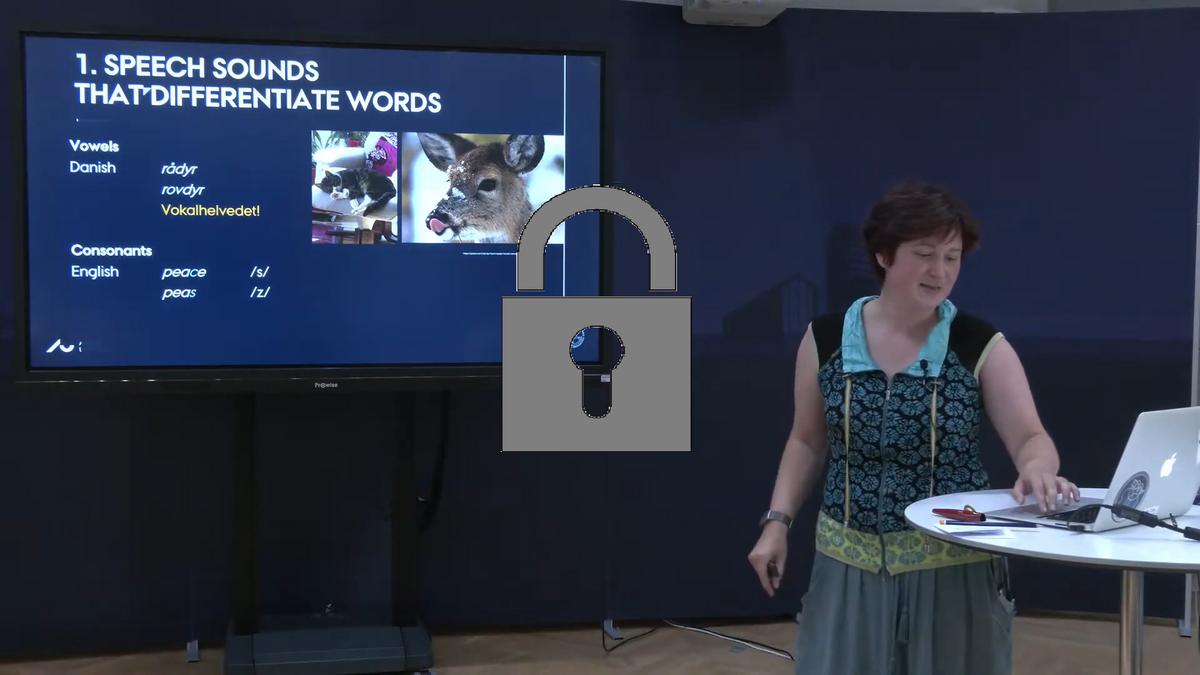Think about when you last spoke with someone you’d never met before on the phone. Chances are that you immediately knew whether the speaker was male or female, whether they were more likely to be younger, middle-aged, or older, what nationality they were (and maybe even the part of the country they were from), and most likely also whether they seemed friendly, attractive, intelligent, or quite the opposite.
Spoken language is a must in the everyday of most of us. While we make sounds in the various languages we speak in order to make ourselves understood, there is so much more to the sounds we produce. In this talk, we will learn about some of the fascinating ways in which we use variation in speech sounds to signal who we are. To do so, we will use examples from a range of languages.
The social life of sounds
In any language, the social functions of pronunciation are truly breath-taking. Through intonation, voice quality, the way we produce vowels and consonants, and various other aspects of speech sounds, we can signal our gender identity, which generation we belong to, which ethnic group we’re part of, which political party we feel partial to, where we come from more generally, our sexual orientation, whether we’re sad, happy, or angry, and even whether we want to be seen as more attractive.
Does biology play a role too?
But how we pronounce sounds can also reveal information about our biological sex, our biological age, our health, and yes, for those of us who are female, even if we’re ovulating.
Linguistic discrimination
Discrimination is one of the biggest societal challenges we face. Because our pronunciation is used to signal who we are, variation in speech sounds can also be used to establish stereotypes and ultimately to discriminate. We’ll see both real-life examples and how the good and the bad guys are portrayed in Disney films through different (native and non-native) English accents. Knowledge is power!



